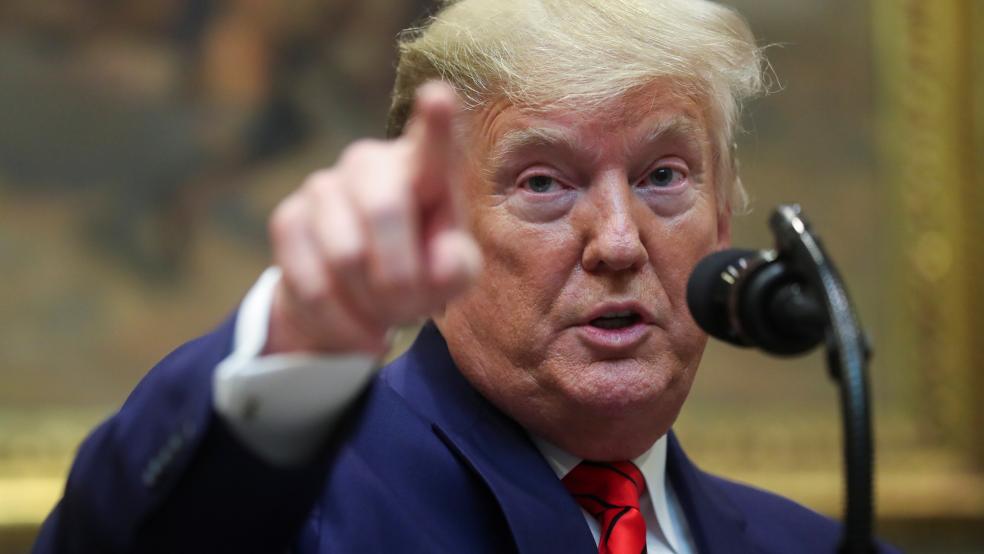There’s no doubt that it’s President Trump’s party now. Wednesday’s impeachment vote was just the latest indication that Republicans have lined up squarely behind the president, but this week offered another dramatic sign as well. As The Washington Post’s Robert Costa reports, Congress approved a nearly $1.4 trillion spending package that will push deficits well beyond $1 trillion a year — but there was “hardly a peep from many Republicans who have shut down the government over spending in the past.”
Costa continues:
“The mammoth spending deal provides another stark indication of the Republican Party’s near-total capitulation to Trump, who pays little mind to the goals of fiscal austerity that animated the GOP establishment and its tea party wing during years of dramatic fiscal standoffs with President Barack Obama.
“But as Trump has rallied the GOP to defend him from Wednesday’s House impeachment vote, the Republican drumbeat on the looming threats of debt and deficits has faded — replaced with an increasing emphasis on grievance politics, tax cuts and revamping the judiciary. …
“Democrats and some conservative Republicans see rampant hypocrisy in this turn of events, particularly after Republicans made shrinking the size of government a central pillar of their agenda during the Obama years.”
Some critics of the GOP argue that the party’s Obama-era alarmism was always more about bludgeoning Democrats and blocking progressive policies than about fiscal responsibility. And they say that conservatives care more about slashing taxes than they do about deficits, pointing to the 2017 Republican tax law — and President George W. Bush’s two terms — as evidence.
To be sure, some Republicans have pushed back on the latest spending deal, and the conservative House Freedom Caucus officially opposed it, citing debt and deficit concerns. Other Republicans called it a flawed but necessary compromise to fund the military and keep the government from shutting down. Either way, as Costa notes, GOP lawmakers have consistently shied away from pointing any fingers at Trump, focusing instead on the lack of interest among Capitol Hill lawmakers of both parties in addressing the long-term challenges facing Social Security and Medicare.
For now, Republicans who do try to press debt and deficit concerns find little traction around the issue. Costa points to the short-lived presidential campaign of Mark Sanford, the former South Carolina governor who recently dropped his primary challenge to Trump. “I thought there was still a market for conservatism that would go after the debt and deficits,” Sanford tells Costa. “I thought my conversations with Republicans years ago about those issues were real. I’m not sure anymore if they were.”





